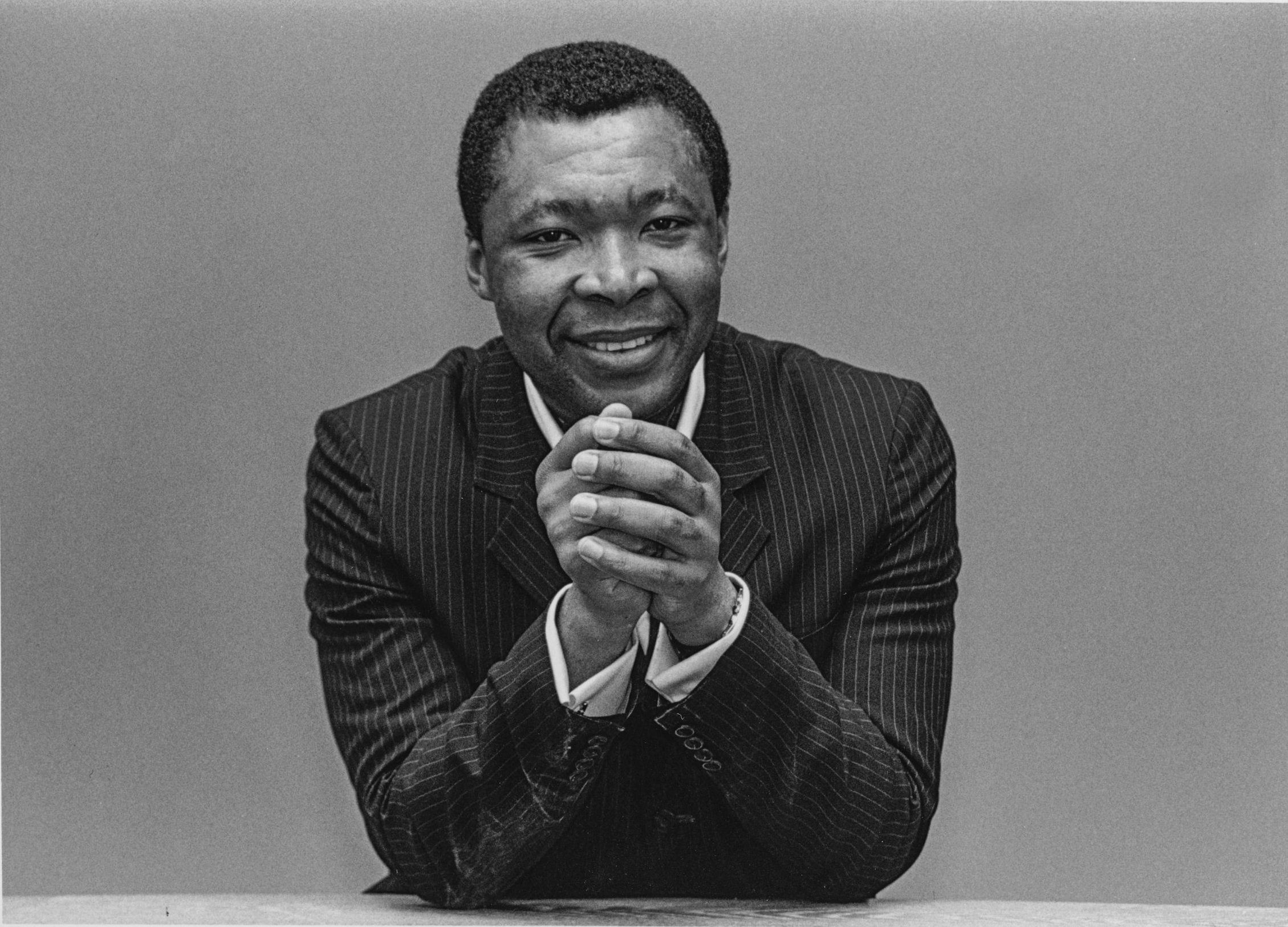Okwui’s Curating World
Abdellah Karroum, "Okwui's Curating World," in Nka: Journal of Contemporary African Art, no. 48, pp.158-159. Copyright 2021, Nka Publications. All rights reserved. Republished by permission of the copyrightholder, and the present publisher, Duke University Press. www.dukeupress.edu
When I am asked what is the most important thing in life, I answer "luck:' and the second most important is hard work. I was lucky to meet Okwui, and the hard work we did defined who I am today. Okwui's ability to perceive the world and to translate ideas into exhibitions and publications is simply unmatched in the world of art. His sense of alignment and solidarity with others is foundational for the success of his collaborations with artists, curators, and audiences.
Among the many places, experiences, and stories I can tell about Okwui, I want to mention five:
One: The first time I listened to his reading at a global art center was in 1996, when he gave a talk at the CAPC Museum of Contemporary Art of Bordeaux. Okwui showed works from Off centers by artists such as Yang Fudong of China and the Raqs Medial Collective of India. I was just starting to think about my research for a PhD at the University of Bordeaux, where Okwui had been invited by Michel Bourel and Jean-Louis Froment to give a lecture. Some ten years later, in 2005, I received a phone call in Rabat, Morocco: "Hi, Abdellah. This is Okwui. How are you. I am on L'appartement 22 balcony; the space is great . . . ."1 Okwui was one of the first art professionals to look at my curatorial work in Morocco. The following year, I was cocurating the Dak'Art Biennale, one of the key experiences in my curatorial life. I loved hearing Wolof and realized how much the Amazigh culture that I am from is rooted beyond the vast Sahara.
Two: For the Gwangju Biennale, South Korea, in 2008, Okwui invited me to curate one of the Position Papers exhibitions. It was a moment of great awareness of the shared space, where the notion of transnational in the curating world was evident. There was no limit or border between the exhibition as an editorial space and the works of art as the expression of the artists' visions. We all shared the same belief and responsibility in the relationship between arts, technologies, and ecologies, leading to effective collective intelligence in addressing a political message.
Three: In 2011, Okwui, Claire Staebler, Émilie Renard, Melanie Bouteloup, and I traveled from Paris to Zaghreb, Belgrade, and Tangiers in preparation for our cocuration of La Triennale, which opened one year later at Palais de Tokyo, Paris. One of the most important memories for me of this project was the camaraderie that formed among us. In Belgrade, I was refused entrance to Serbia because of the visa. Although Okwui and my colleagues were allowed to enter Serbia, Okwui decided to not travel there if his entire team could not cross the border. This decision afforded us the opportunity to walk across the city of Vukovar, Croatia—ruined during the Balkan Wars of 1912 and 1913—to find the Serbian Consulate.
When Okwui often spoke about the injustice of the visa system and how it affected African artists and curators, it was neither a complaint nor a nationalist criticism. This issue reflects historical injustice, and his position was a leitmotif in the necessary decolonial discourse. His analysis of systemic racism helped establish the co-presences of Off centers in the art world's representations.
Of course, we had a lot of unforgettable moments during the research expeditions: the Morocco Palace night club in Tangiers, with Atlas Amazigh dancing music, was the best treat to relax after intensive studio visits.
Four: Doha 2013. Okwui was the first speaker I invited to Mathaf: Arab Museum of Modern Art in Doha for a talk on the Off center models of partnerships and institutional development, a theme that always made sense in consolidating relationships with curators and the institutions they work with in the Global South.
Five: Munich 2018. Okwui was imagining his last exhibition, dedicated to the work of El Anatsui. The monumental show took place at Mathaf and was delivered by his cocurator, Chika Okeke-Agulu.
My last meeting with Okwui was more silent, but important, followed by the trip to Akwuzu, Nigeria in 2019 to accompany him to the land of his ancestors. A year before, Okwui expressed the desire to show me his country. While I wish it had happened during his lifetime, this journey was still very much in commune with his spirit.
The transformative, unfinished project of Okwui Enwezor will remain active for many more decades. He reinvented curating strategies as a force where art is always at the center.
Abdellah Karroum is the director of Mathafi Arab Museum of Modern Art, Qatar, since 2013.
References
1
L'appartement 22 is an artist- and curator-run collective founded by Abdellah Karroum in Rabat, Morocco, in 2002.
